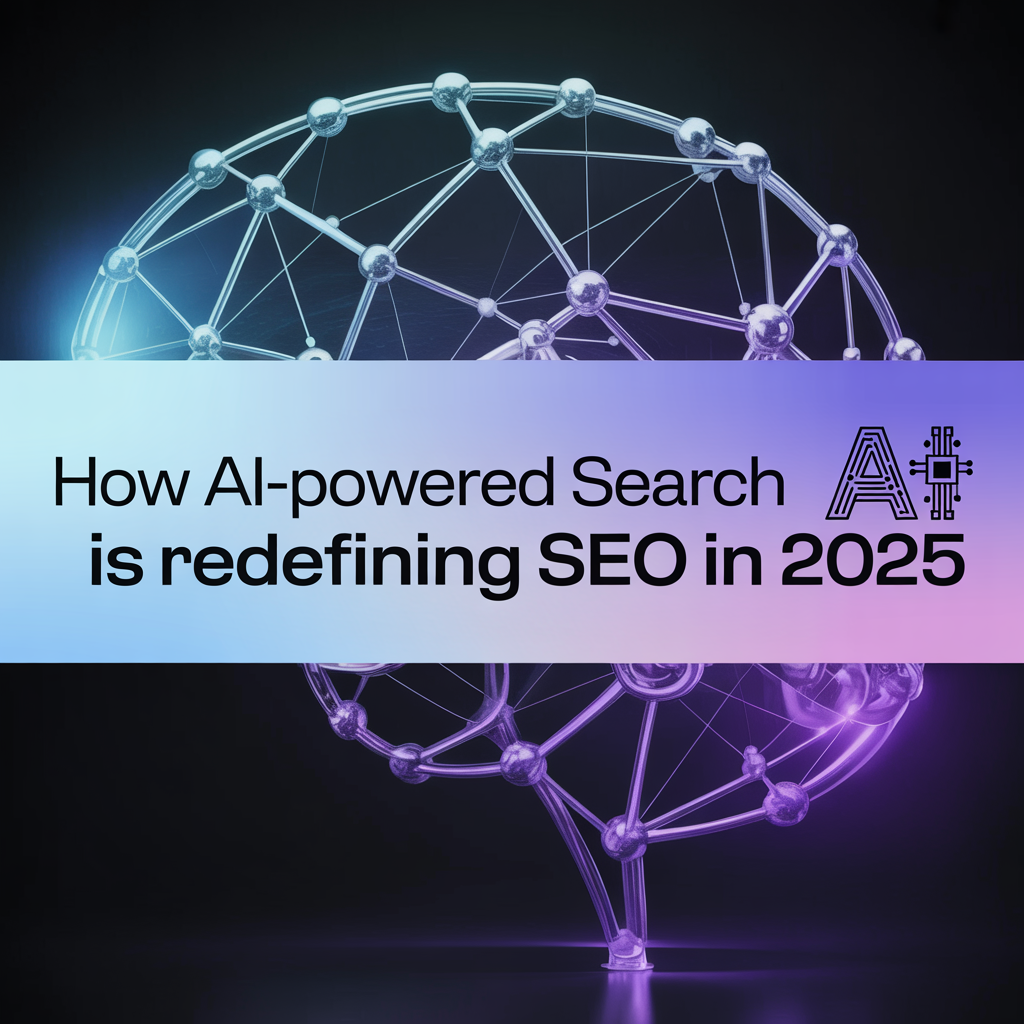Search is no longer just about keywords—it’s about intent, context, and intelligence. In 2025, AI-powered search is transforming how people discover content and how businesses optimize their digital presence. Traditional SEO strategies that once focused on backlinks and keyword density are giving way to more advanced, AI-driven methods that prioritize user experience, personalization, and semantic relevance.
This blog will explore how AI-powered search engines like Google’s Search Generative Experience (SGE), Microsoft Copilot, and AI-driven search assistants are changing SEO strategies, the challenges marketers face, and proven approaches to thrive in this new landscape.
By the end, you’ll know:
- What AI-powered search is and why it matters in 2025
- The challenges SEO leaders are facing with AI-driven results
- Actionable strategies to adapt your digital marketing efforts
- The future of SEO in an AI-first world
What is AI-Powered Search and Why It Matters
AI-powered search leverages machine learning, natural language processing (NLP), and generative AI to understand queries, deliver contextual answers, and anticipate user intent. Unlike traditional search engines that return a list of links, AI-powered search often provides direct answers, conversational results, and predictive insights.
For example:
- Google’s SGE generates AI-based summaries with citations.
- Microsoft’s Copilot + Bing AI provides contextual responses.
- AI assistants (ChatGPT, Perplexity AI) are becoming direct search competitors.
📊 Stat: According to Gartner, by 2026, 30% of all search queries will be handled by AI-driven platforms instead of traditional search engines.
Why it matters:
- Organic traffic models are shifting—featured snippets and AI-generated responses can reduce click-through rates (CTR).
- Businesses must rethink SEO as Answer Engine Optimization (AEO).
- User journeys are shorter, with AI delivering instant, contextual insights.
Challenges in AI-Driven SEO for Digital Marketers
1. Decline in Organic Clicks
With AI providing direct answers, fewer users click through to websites. Marketers must adapt to declining CTRs from SERPs.
2. Content Saturation
AI algorithms prioritize authoritativeness, context, and engagement signals. Average, keyword-stuffed blogs no longer perform—content must add unique value.
3. Data Transparency Issues
AI search often hides how results are ranked. Unlike traditional SEO, where backlinks and keywords were measurable, AI-driven rankings are opaque.
4. Voice and Conversational Search
With AI powering voice assistants, SEO must account for conversational queries instead of rigid keyword strings.
5. Brand Visibility Challenges
If AI surfaces summarized answers, your brand might not appear unless cited. Optimizing for visibility within AI summaries is now critical.
Proven Strategies to Leverage AI-Powered SEO
1. Shift from Keywords to Intent
- Focus on semantic search by creating content around questions, problems, and outcomes.
- Use tools like MarketMuse, Clearscope, and SurferSEO to analyze intent-driven keywords.
✅ Example: Instead of targeting “best CRM software”, optimize for “How to choose a CRM for enterprise growth in 2025.”
2. Optimize for Answer Engine Optimization (AEO)
- Structure content for AI-generated summaries.
- Use FAQs, schema markup, and conversational tone to increase chances of being cited.
- Create concise answer blocks within blogs.
3. Enhance E-E-A-T (Experience, Expertise, Authoritativeness, Trustworthiness)
- Showcase author credentials and industry expertise.
- Use first-party data, case studies, and original insights.
- Publish thought leadership instead of generic articles.
4. Prioritize Multimodal Content
AI-powered search favors video, podcasts, and visuals alongside text.
- Optimize YouTube videos with transcripts.
- Repurpose blog posts into infographics and short-form videos.
- Leverage visual SEO with alt text and metadata.
5. Use Generative AI Tools for SEO Research
AI isn’t just disrupting SEO—it’s helping marketers adapt.
- Tools like ChatGPT, Jasper, and Writesonic can speed up content ideation.
- Predictive AI platforms analyze user behavior trends to refine strategy.
6. Focus on Conversational & Voice SEO
- Optimize for long-tail, natural language queries.
- Include Q&A sections targeting how users might “ask” questions verbally.
Trends and the Future of AI-Powered SEO in 2025
1. The Rise of Zero-Click Searches
By 2025, over 50% of searches may not result in a click due to AI’s ability to provide instant answers. Brands must rely on citations and brand mentions for visibility.
2. Integration of AI Search into Social Platforms
TikTok, Instagram, and LinkedIn are rolling out AI-powered discovery tools. SEO strategies must extend beyond Google and Bing.
3. Hyper-Personalized Search Results
AI will curate results based on user history, preferences, and location. Two people searching the same query may get entirely different results.
4. The New Role of Paid + Organic SEO
Paid visibility will rise as organic reach declines. Smart marketers will integrate SEO + Paid Search + AI-driven content amplification.
Pro Tips & Bonus Insights
- Leverage Structured Data: Use schema markup to help AI understand your content.
- Build Thought Leadership: Guest posts, interviews, and podcasts increase brand authority.
- Invest in First-Party Data: AI search prioritizes original, verifiable insights.
- Stay Ahead with AI SEO Tools: Platforms like BrightEdge and Semrush AI now provide AI-first SEO strategies.
Conclusion
AI-powered search is redefining SEO in 2025, making it more contextual, conversational, and competitive. While organic clicks may decline, opportunities exist for brands that optimize for AI visibility, user intent, and experience-driven content.
The future of SEO isn’t about tricking algorithms—it’s about creating trustworthy, high-value content that AI wants to showcase.
Want to future-proof your SEO strategy? Connect with Us
